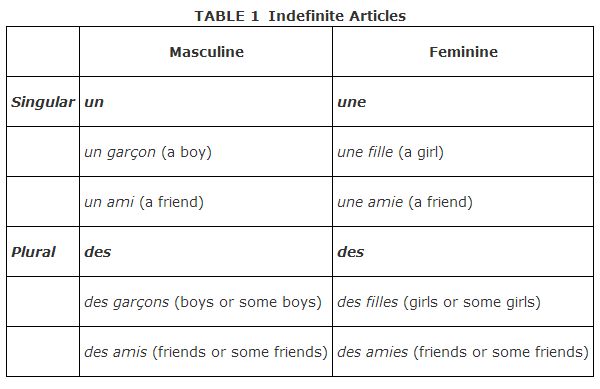Indefinite articles, shown in Table 1, refer to persons and objects not specifically identified: a girl, an apple, or some boys. Use different indefinate articles based on whether the noun that follows is masculine, feminine, singular, or plural.

The e from the indefinite article une is never dropped. This final e does, however, change the sound of the word un, which is nasalized, to une, which is not nasalized.
Omit the indefinite article in the following cases:
- After the verb être (to be) and devenir (to become) that come before the names of professions, except after c'est or when the noun is modified by an adjective
- Anne est docteur. (Anne is a doctor.)
- Luc devient avocat. (Luc is becoming a lawyer.)
- But:
- C'est une actrice. (She's an actress.)
- C'est un dentiste. (He's a dentist.)
- M. Leconte est un patron populaire. (Mr. Leconte is a popular boss.)
- After the exclamatory adjective quel (quelle, quels, quelles)
- Quel garçon curieux! (What a curious boy!)
- Quelles maisons luxueuses! (What luxurious houses!)
- Before the numbers cent (100) and mille (1,000)
- cent enfants (one hundred children)
- mille dollars (one thousand dollars)